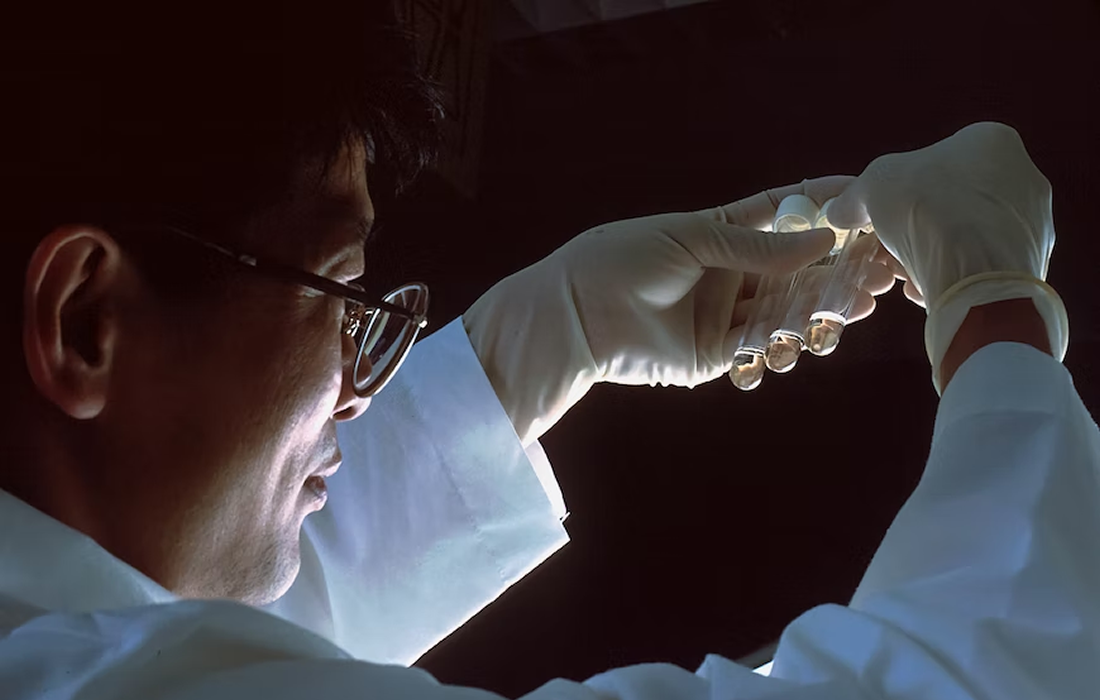Stem Cell Therapy for Specific Conditions
Successful Cure of HIV Infection After Stem Cell Transplantation, Study Suggests
Haematopoietic stem cell transplantation for the treatment of severe blood cancers is the only medical intervention that has cured two people living with HIV in the past. An international group of physicians and researchers from Germany, the Netherlands, France, Spain, and the United States has now identified another case in which HIV infection has been shown to be cured in the same way. In a study published this week in Nature Medicine, in which DZIF scientists from Hamburg and Cologne played a leading role, the successful healing process of this third patient was for the first time characterized in great detail virologically and immunologically over a time span of ten years.
An infection with the human immunodeficiency virus (HIV) was previously considered incurable. The reason for this is that the virus “sleeps” in the genome of infected cells for long periods of time, making it invisible and inaccessible to both the immune system and antiviral drugs. The “Düsseldorf patient,” a 53-year-old man, is now the third person in the world to be completely cured of the HI virus by a stem cell transplant.
The patient, treated at the University Hospital Düsseldorf for his HIV infection, had received a stem cell transplant due to a blood cancer. As in the cases of the first two patients named “Berlin” and “London,” the Düsseldorf patient received stem cells from a healthy donor whose genome contains a mutation in the gene for the HIV-1 co-receptor CCR5. This mutation makes it impossible for most HI viruses to enter human CD4+ T-lymphocytes, their major target cells.
Following transplantation, the patient was carefully monitored virologically and immunologically for almost ten years. Using a variety of sensitive techniques, the researchers analysed the patient’s blood and tissue samples to closely monitor immune responses to HIV and the continued presence or even replication of the virus. Already shortly after transplantation and over the entire course of the study years, neither replicating virus nor antibodies or reactive immune cells against HIV were detected. More than four years ago, the antiviral therapy against HIV was discontinued. Ten years after transplantation and four years after the end of anti-HIV therapy, the Düsseldorf patient could be declared cured by the international research consortium.
“This case of curing a chronic HIV infection by stem cell transplantation shows that HIV can in principle be cured,” says Prof. Julian Schulze zur Wiesch, DZIF scientist at the University Medical Center Hamburg-Eppendorf and one of the study leads. “In particular, the results of this study are also enormously important for further research into a cure for HIV for the vast majority of people living with HIV for whom stem cell transplantation is not an option.”
Sources:
Björn-Erik Ole Jensen, Elena Knops, Leon Cords, Nadine Lübke, Maria Salgado, Kathleen Busman-Sahay, Jacob D. Estes, Laura E. P. Huyveneers, Federico Perdomo-Celis, Melanie Wittner, Cristina Gálvez, Christiane Mummert, Caroline Passaes, Johanna M. Eberhard, Carsten Münk, Ilona Hauber, Joachim Hauber, Eva Heger, Jozefien De Clercq, Linos Vandekerckhove, Silke Bergmann, Gábor A. Dunay, Florian Klein, Dieter Häussinger, Johannes C. Fischer, Kathrin Nachtkamp, Joerg Timm, Rolf Kaiser, Thomas Harrer, Tom Luedde, Monique Nijhuis, Asier Sáez-Cirión, Julian Schulze zur Wiesch, Annemarie M. J. Wensing, Javier Martinez-Picado, Guido Kobbe. In-depth virological and immunological characterization of HIV-1 cure after CCR5Δ32/Δ32 allogeneic hematopoietic stem cell transplantation. Nature Medicine, 2023; DOI: 10.1038/s41591-023-02213-x
German Center for Infection Research. (2023, February 24). Successful cure of HIV infection after stem cell transplantation, study suggests. ScienceDaily. Retrieved February 24, 2023 from www.sciencedaily.com/releases/2023/02/230224165409.htm
Image from:
Photo by National Cancer Institute on Unsplash.

